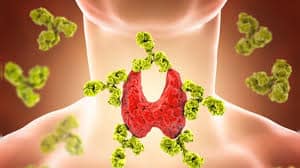
Navigating Thyroid Health: Insights from an Endocrinologist
Understanding Thyroid Function
Thyroid health is a crucial aspect of overall well-being, as this small gland plays a significant role in regulating various bodily functions. Understanding how the thyroid functions is essential for maintaining optimal health.
The thyroid gland produces hormones that regulate metabolism, energy levels, body temperature, and heart rate. These hormones, namely thyroxine (T4) and triiodothyronine (T3), influence nearly every cell in the body, impacting growth, development, and metabolism.
Common Thyroid Disorders
Hypothyroidism
Hypothyroidism occurs when the thyroid gland fails to produce enough hormones to meet the body’s needs. This condition can lead to symptoms such as fatigue, weight gain, constipation, dry skin, and sensitivity to cold temperatures.
Hyperthyroidism
Hyperthyroidism, on the other hand, results from an overactive thyroid gland, leading to excessive production of thyroid hormones. Symptoms may include weight loss, rapid heartbeat, anxiety, sweating, and intolerance to heat.
Thyroid Nodules
Thyroid nodules are lumps that form within the thyroid gland, which can be benign or cancerous. While most nodules are harmless, some may require further evaluation to rule out cancer.
Diagnosing Thyroid Disorders
Laboratory Tests
Diagnosing thyroid disorders typically involves blood tests to measure levels of thyroid hormones (TSH, T4, and T3) and thyroid antibodies. These tests provide valuable insights into thyroid function and help guide treatment decisions.
Imaging Studies
In some cases, imaging studies such as ultrasound, CT scans, or MRI may be performed to evaluate the size and structure of the thyroid gland and detect any abnormalities or nodules.
Treatment Options
Medications
Medications are often prescribed to manage thyroid disorders. For hypothyroidism, synthetic thyroid hormones (levothyroxine) may be prescribed to replace deficient hormones. For hyperthyroidism, medications such as beta-blockers or anti thyroid drugs may be used to regulate hormone levels.
Radioactive Iodine Therapy
Radioactive iodine therapy is a common treatment for hyperthyroidism, where radioactive iodine is administered orally to destroy overactive thyroid cells.
Surgery
In cases of thyroid nodules or cancer, surgery may be necessary to remove part or all of the thyroid gland. This procedure, known as a thyroidectomy, may be performed using traditional surgery or minimally invasive techniques.
Lifestyle Modifications
In addition to medical treatments, lifestyle modifications can also play a significant role in managing thyroid disorders. These may include maintaining a healthy diet, getting regular exercise, managing stress levels, and avoiding smoking.
Conclusion
Navigating thyroid health requires a comprehensive understanding of thyroid function, common disorders, diagnostic methods, and treatment options. By working closely with healthcare providers and adopting healthy lifestyle habits, individuals can effectively manage thyroid disorders and optimize their overall well-being.